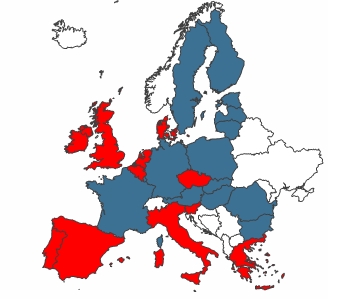
Hardly can one find a more empty term than “a speculator”. According to the Short dictionary of Slovak language, “to speculate” means to execute trade or financial transactions in effort to make a profit. Following this definition, “a speculator” is a trader, investor, but also wireworks laborer seeking for co-workers to share a car to work with the aim of saving some money for fuel. The only difference between a speculator and a trader is just a small hint that the former earns money in an unfair way.
Negative connotations of speculators are visible form a psychological, religious, or culture perspective. In economics, however, there is no such thing as a speculator. There are only intermediaries, who “are the means by which markets become ‘perfect’. Arbitrage and bargain-hunting is the discipline that ensures a single price, providing accurate signals on relative scarcity and engendering enormous flows of resources and labor towards their highest valued use.”
The author of the quote is professor of economics Michael Munger of Duke University (US). He devoted a big part of his academic carrier to exploration of (un)free exchange between people: its causes, course, and consequences. To explain the quote he used nowadays legendary article Economic Organization of a P.O.W. Camp written by R. A. Radford, in which economic behavior of captured Allies´ soldiers during the World War II is described.
Munger draws our attention to a passage, in which one morning a military chaplain started to trade with a capital of one can of cheese and five cigarettes. In the evening he returned with the whole original capital – and with an additional complete Red Cross package. Each exchange he made was voluntary. Someone changed bean for tobacco, because he preferred smoking to eating legumes. Someone changed soap for sugar, because he liked eating sweets more than being clean. After each exchange both sides were better off, nobody complained that the chaplain cheated. On the contrary, they were all grateful for an opportunity to procure anything (within the possibilities of the camp). During the day no new packages were brought to the camp. So at the end of the day everyone “lost” in total one complete Red Cross package, which was accumulated in the hands of the enterprising chaplain.
To understand utility of an intermediary we need to understand subjective price theory. A can of cheese does not have a universal value given from the “universe”, but rather N subjective values which vary in time and space. A task of the intermediary is to exchange what we need less for what we need more.
Naturally, if we made exchanges directly, our gains would increase even more. However, a search for opportunities is an activity with non-zero costs. Intermediaries-speculators can reduce these costs thanks to their abilities and experience.
World’s dynamic and mobile applications such as Uber are starting smaller (or bigger?) revolution in perception of intermediary in the field of market exchange. But that’s a whole other story.
Translation: Daniela Potočňáková
Professor Michael C. Munger will be a keynote speaker at the Seminar on Austrian Economics VI organized by INESS 5-8 March 2015 in Slovakia.
The article was originally published in Slovak on Trend.sk
























